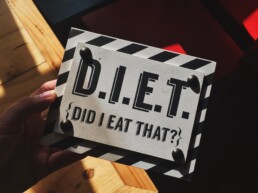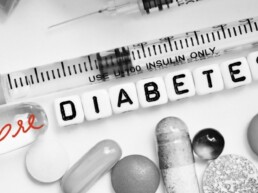When most people think of weight loss, they immediately imagine themselves signing up for an expensive gym membership or committing to a gruelling exercise regimen. While exercise is undoubtedly essential for overall health and wellness, it is not the only factor that contributes to weight loss. In fact, diet plays an equally critical role in achieving and maintaining a healthy weight. By making mindful choices about the types and amounts of food we consume, we can create a caloric deficit that leads to sustainable weight loss. In this post, I will explore the diet vs exercise debate in weight loss and how they can be combined to achieve optimal results. So, if you’re looking to shed a few pounds you’re confused about the answer to the diet vs exercise debate, and want to know the best way to go about it, keep reading!
What does ‘diet’ really mean?
Diet refers to the types and amounts of food that you consume, and it is essential for weight loss because it directly affects the number and type of calories consumed.

To lose you must create a caloric deficit, which means consuming fewer calories than you expend. While exercise can contribute to creating a caloric deficit, it can be challenging to maintain high levels of physical activity consistently. Moreover, the types of calories you consumes also play a significant role in weight loss. For example, a diet high in refined carbohydrates and added sugars can lead to blood sugar spikes and crashes, which can increase hunger and sabotage weight loss efforts. On the other hand, a diet high in protein and fibre can help promote satiety and support healthy weight loss. Thus, creating a caloric deficit while also consuming nutrient-dense, whole foods can be an effective strategy for achieving sustainable weight loss.
Where does ‘exercise’ fit in?
On the other hand, exercise plays a crucial role in weight loss because it helps increase energy expenditure, which is the number of calories a person burns. Regular exercise can increase energy expenditure both during and after physical activity. During exercise, the body burns calories to fuel movement and maintain bodily functions such as breathing and circulation. After exercise, the body continues to burn calories as it repairs and recovers from the physical activity.

Additionally, exercise can help preserve lean muscle mass, which is essential for maintaining a healthy metabolism. Muscle burns more calories at rest than fat, so having more muscle mass can help increase resting energy expenditure. This means that even when you are not actively exercising, you may burn more calories if they have more muscle mass.
What do the studies say?
Several studies have compared the effectiveness of diet and exercise for weight loss. A study by Foster-Schubert et al. (2012) found that both diet and exercise were effective in promoting weight loss, but diet was more effective than exercise. The study involved 439 overweight or obese women who were randomly assigned to either a diet-only group, an exercise-only group, a diet and exercise group, or a control group. After 12 months, the diet-only group had lost an average of 8.5% of their body weight, compared to 2.4% in the exercise-only group and 10.8% in the diet and exercise group.
Another study by Donnelly et al. (2009) published in the International Journal of Obesity compared the effects of diet and exercise on weight loss in 107 overweight or obese adults. Participants were randomly assigned to one of four groups: diet only, exercise only, diet plus exercise, or control. After 12 months, the diet-only group lost an average of 10.4% of their body weight, compared to 2.4% in the exercise-only group, 8.5% in the diet plus exercise group, and 0.0% in the control group.
A meta-analysis of 14 randomized controlled trials conducted by Schwingshackl and Hoffmann (2014) found that both diet and exercise were effective in promoting weight loss, but diet was more effective than exercise. The analysis included a total of 1,233 participants and found that diet-only interventions resulted in an average weight loss of 7.3 kg, while exercise-only interventions resulted in an average weight loss of 2.4 kg.
And the winner is…
So what’s the verdict on the diet vs exercise debate?
While both diet and exercise have been shown to be effective in promoting weight loss, the findings suggest that diet may be more effective than exercise.
However, it is important to note that diet and exercise are not mutually exclusive and can work together to create a caloric deficit and promote weight loss. It is also important to note that the effectiveness of diet and exercise may vary depending on individual factors such as age, gender, genetics, and health status.
A word of caution about ‘diets’
While dieting is an essential part of weight loss, it is essential to approach it in a healthy and sustainable manner. Repetitive or excessive dieting, particularly by dropping calories too low, can subvert weight loss efforts and have negative impacts on overall health.
When your body is deprived of calories, it goes into “starvation mode” and slows down its metabolic rate. This means that the body burns fewer calories at rest to conserve energy. As a result, weight loss can plateau or even reverse despite continued caloric restriction.
Moreover, excessively low-calorie diets can lead to nutrient deficiencies and malnutrition. This can cause a host of health problems, including weakness, fatigue, and impaired immune function. Extreme caloric restriction can also lead to binge eating and other disordered eating behaviours, which can have long-term negative effects on mental and physical health.
To avoid these negative consequences, it is important to approach weight loss with a balanced and sustainable plan. This may include incorporating a variety of nutrient-dense foods into your diet and ensuring adequate protein and other essential nutrients to support metabolic and muscular health. Additionally, you can incorporate exercise into your routine to help burn calories and preserve muscle mass. By taking a healthy and sustainable approach to weight loss, you can achieve their goals without compromising your health or sabotaging their efforts.
Is there such a thing as ‘too much exercise’?
While exercise is also an important component of weight loss, excessive exercise can actually subvert weight loss efforts and negatively impact overall health. Over-exercising can lead to physical and mental exhaustion, increased risk of injury, and decreased motivation to maintain a regular exercise routine.
Furthermore, different types of exercise have different impacts on weight loss. While all types of exercise can contribute to burning calories and increasing energy expenditure, some forms of exercise may be more beneficial for weight loss than others. For example, high-intensity interval training (HIIT) has been shown to be particularly effective for burning calories and promoting fat loss. HIIT involves alternating periods of intense exercise with periods of rest or lower-intensity exercise, which helps increase the number of calories burned in a shorter amount of time.
Resistance training, which involves using weights or bodyweight exercises to build strength and muscle, can also be beneficial for weight loss. Muscle burns more calories at rest than fat, so building muscle mass can help increase resting energy expenditure and promote weight loss. Additionally, regular resistance training can help prevent the loss of lean muscle mass that can occur during caloric restriction.

Cardiovascular exercise, such as running or cycling, can also be effective for weight loss. While it may not burn as many calories as HIIT, it can still contribute to creating a caloric deficit and improving cardiovascular health.
Exercising in moderation is key, because excessive exercise can subvert weight loss efforts and negatively impact overall health. Also, different forms of exercise have different benefits for weight loss, and it is important to find a balance that works for your needs and goals. Incorporating a combination of HIIT, resistance training, and cardiovascular exercise, along with a healthy diet, can help you achieve your weight loss goals in a sustainable and healthy manner.
What should you do?
Overall, while the diet vs exercise debate for weight loss continues, research suggests that a combination of both may yield the best results. A healthy and sustainable weight loss plan should focus on creating a caloric deficit through a balanced diet and regular physical activity, while also taking into account individual needs and preferences. If you still have questions about the diet versus exercise debate or if you’re looking to create a sustainable weight loss plan for yourself, please don’t hesitate to get in touch. As a Nutritionist and Prediabetes Coach, I’m always here to help and provide information, but I understand that everyone’s situation is unique. So, if you’re looking for personalized advice, feel free to reach out to me. I’m happy to assist you in any way I can!
SHARE

Madhavi Shilpi
Nutritionist
Prediabetes Coach
Related
Fibre: Unlocking the Secrets to Better Health
Are you ready to explore the fantastic world of fibre? If you're not already a…
3 Weight Loss Myths
Losing weight is a common goal for many people, but with so much information…
Why do diets fail?
Why does ‘lose 5 kg in 5 weeks’ turn into a mirage each time you chase it? Why…
What is Prediabetes?
Have you been diagnosed with Prediabetes? Are you wondering what it actually…
Proteins: Building Blocks for a Stronger You
Are you curious about the role proteins play in our diet? Do you wonder…
Carbohydrates: Fuel For Your Body
Do you often wonder about the role carbohydrates play in our diet? Did…






